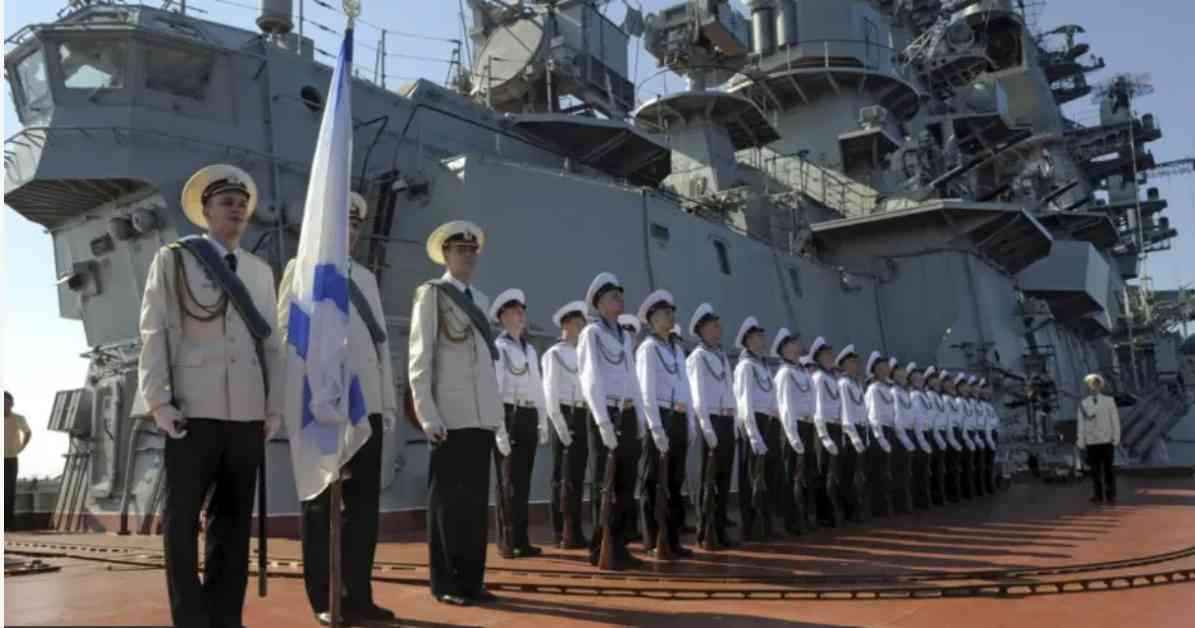Russia’s Mediterranean Fleet Retreats Amid NATO Claim of Two Seas
Russia’s naval presence in the Mediterranean is undergoing a significant transformation as ships from the fleet are seen arriving at Syria’s Tartus port. This movement is sparking speculation that it may be the beginning of an evacuation following the fall of the Assad regime. The Telegraph reports that this development, coupled with NATO’s expanding influence in the Baltic region, signifies a notable shift in the dynamics of naval power.
The Departure from Tartus and Strategic Implications
The retreat from Tartus, which serves as Russia’s sole Mediterranean naval base, represents a major strategic setback for Moscow. It effectively signals the end of Russia’s capacity to exert power in southern Europe and the Middle East without the need for extended deployments from distant home ports. This withdrawal is occurring amidst broader regional changes that have seen NATO’s sphere of influence expanding while Russia’s maritime reach contracts on multiple fronts, resulting in what analysts are dubbing a “homeless Russian Mediterranean Fleet.”
A recent report from the Royal United Services Institute (RUSI) highlights the uncertainty facing the Russian navy in the Mediterranean as thousands of Russian personnel and their warships are preparing to depart Syria. This move comes after Russia has maintained a presence in Tartus since the 1970s, with its role significantly escalating following its intervention in the Syrian civil war in 2015. The strategic significance of the base grew even more after Türkiye closed the Bosporus Strait to foreign warships in 2022, effectively making Tartus Russia’s only Mediterranean naval facility.
Potential Bases and Strategic Challenges
While there are potential alternative bases in countries like Algeria, Sudan, and Libya, RUSI suggests that none of these options are viable replacements for Tartus. The think-tank points out that Algeria lacks a compelling reason to host Russian forces, negotiations for a presence in Port Sudan are still in a state of uncertainty, and Libyan facilities present technical challenges that need to be addressed.
The absence of access to Tartus could result in the Russian navy’s presence in the region being significantly diminished. According to RUSI, while Russia may not cease to be a regional player altogether, its influence will be greatly diluted without a strong naval presence in the Mediterranean.
The Baltic Sea and NATO’s Growing Influence
In addition to the challenges in the Mediterranean, Russia is also facing diminishing influence in the Baltic Sea, which has effectively become what some refer to as a “NATO lake” with the recent alliance membership of Sweden and Finland. Russian vessels would now have to navigate a perilous path from Arctic bases through multiple strategic chokepoints to reach southern European waters in the event of any potential conflict.
As Russia’s Mediterranean Fleet retreats and NATO’s influence continues to expand, the geopolitical landscape in the region is undergoing significant shifts. The implications of these developments are far-reaching and have the potential to shape the future of naval power dynamics in the Mediterranean and beyond.
We are an independent media outlet that relies solely on advertising revenue to sustain itself. We do not endorse or promote any products or services for financial gain. Therefore, we kindly ask for your support by disabling your ad blocker. Your assistance helps us continue providing quality content. Thank you!

















